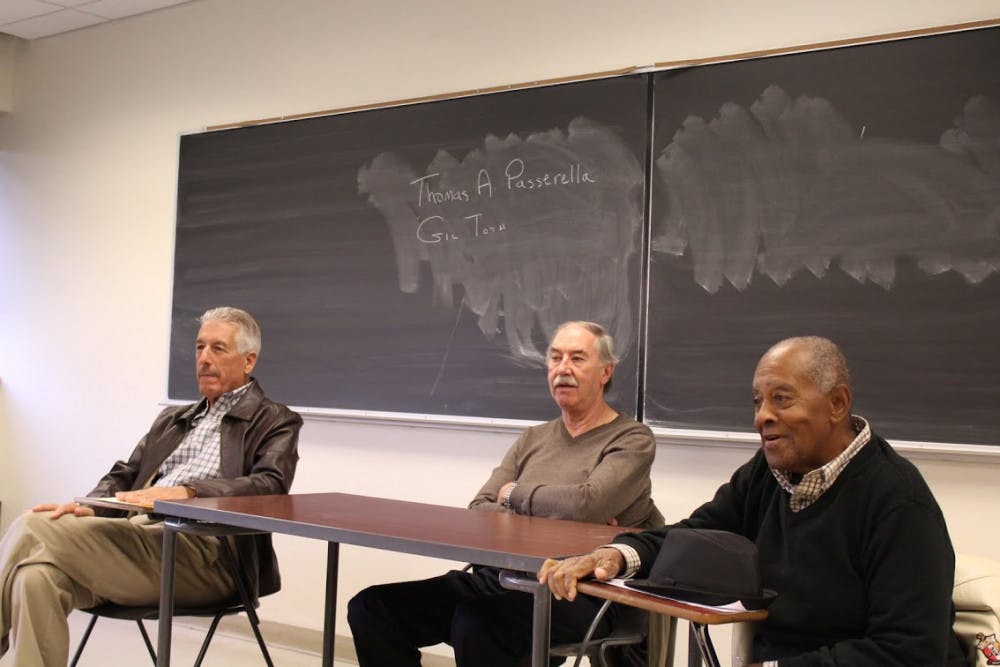By Ashley Skowronek Correspondent
The College’s Trenton Makes Music class was graced with the presence of three celebrated jazz musicians on Tuesday, Oct. 27, each of whom partook in molding the city’s renowned music history. The presentation was aimed to document Trenton and its role in popular culture.
Students welcomed instrumentalists Thomas Grice, Gil Toth and Thomas Passerella, an alumnus of the College. The date marked Grice’s triumphant return to the College nearly a year after flooding the Don C. Evans Black Box Theatre with the deftly crafted notes poured from his saxophone.
“Luck is when preparation meets opportunity,” Passerella said.
Passerella began playing bars on the weekends at the age of 15. He strove to emulate the live musicians staged at virtually every corner store in his Italian neighborhood, where the serenade of accordions was ubiquitous.
“What nurtured music was the fact that we had live music,” Toth said.
When Trenton was a vivacious city pulsating with song, Passerella recalled Broadway musicians choosing Trenton as their primary performance venue over New York City.

After the riots of the 1960s, a dark shadow was cast over the city. Trenton became segregated and tensions ran high. The streets were stripped of their once intimate melodies, and some questioned whether the music would be able to subsist.
As a member of the Trenton Symphony Orchestra during that period, Toth was afraid to play in areas where gangs stood.
“Music was never exposed to that environment and we were weary,” Toth said.
However, after playing for an inner city elementary school, he left immensely impressed with the children and noted the power they had in changing people’s perceptions.
During the riots, Passerella was a junior high school teacher in Trenton where he saw first-hand how music became a lifeline for students.
“Music kept them out of trouble,” Passerella said. “It kept them engaged... music gave them a sense of self-worth.”
After moving to Trenton in 1958 from Ohio, Grice became a music teacher, as well. During his stay, he chaperoned Patti LaBelle after class so she could practice performing. She would later become the legendary singer of “Lady Marmalade.”
All three men agree that children need to be exposed to a variety of music to discern whether they like it or not. One cannot gauge an interest in genres from jazz to Italian opera if they are not aware such styles of music exist.
The same opportunities Grice, Toth and Passerella had as musicians are no longer available for much of today’s youth, partly due to the drop in presence of live music and the defunding of viable school music programs, however, each implores those with a hunger for the arts to understand this challenge and strive to conquer it.
“If you’re going to succeed in any art form you need a lot of discipline,” Passerella said. “It will serve you well. If you don’t have the passion, game over. Game over. You don’t make money in the arts.”







